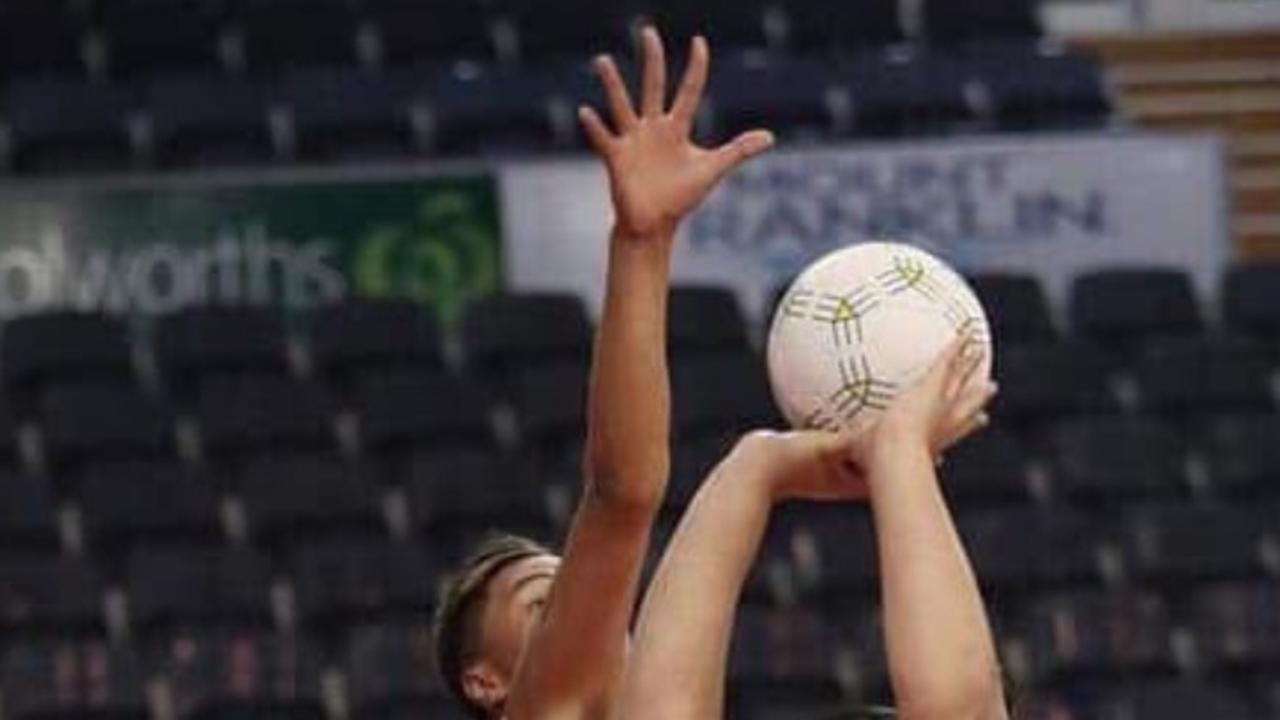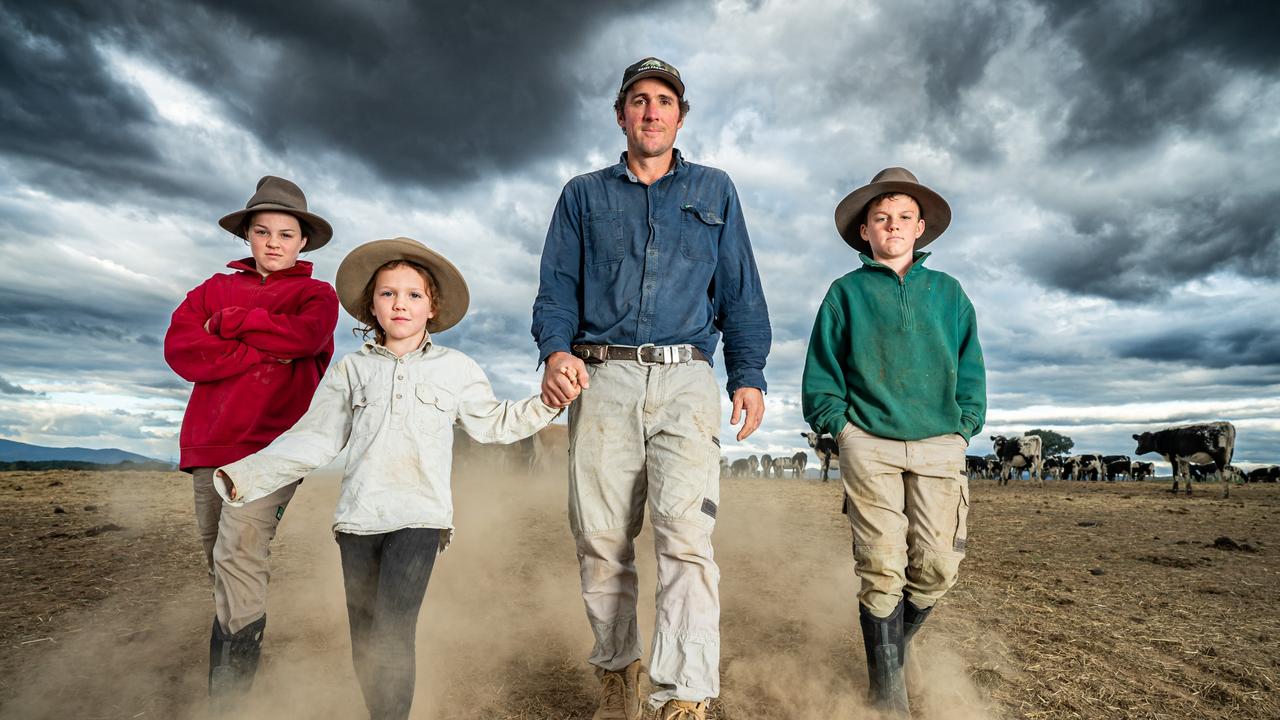Big V: How StudioHawk founder Harry Sanders went from homeless to a multi-millionaire
From being homeless at the age of 17, to a multi-millionaire entrepreneur by his early 20s tech whiz Harry Sanders shares his incredible story with Matt Johnston.
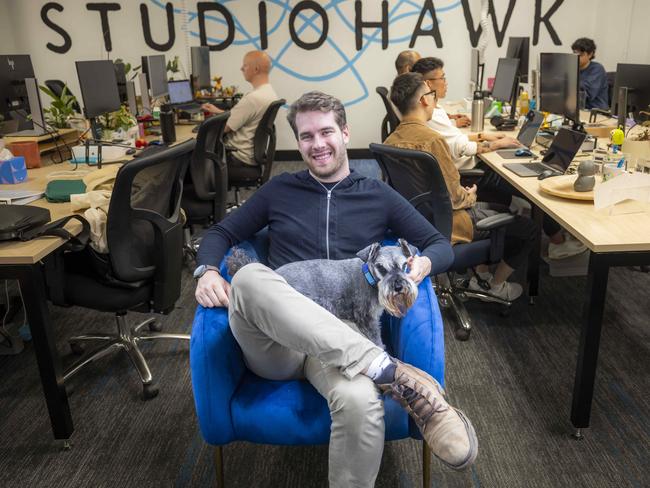
Victoria
Don't miss out on the headlines from Victoria. Followed categories will be added to My News.
Tech whiz Harry Sanders went from being homeless at the age of 17, to a multi-millionaire entrepreneur by his early 20s.
As his business took flight, the humble kid from Flemington’s priority was to help his mum – who had also experienced sleeping rough – secure keys to a home.
“That’s the most emotional purchase I’ll ever make in my life,” he says.
“Those are the moments in life you just never forget and make it all worth it.
“A week after she actually moved in, mum called me just in tears and I’m like, ‘what’s wrong’? She said, ‘I can’t believe this is my house’.”
Sanders took on his first client at his search engine optimisation (SEO) business StudioHawk while he was still on the streets, and in less than a decade has turned it into a global venture turning over tens of millions of dollars a year.
As an ambassador for youth homelessness support service the Lighthouse Foundation, which helped him during his darkest moments, Sanders shares his literal rags to riches story with Matt Johnston for the Herald Sun’s Big V interview.
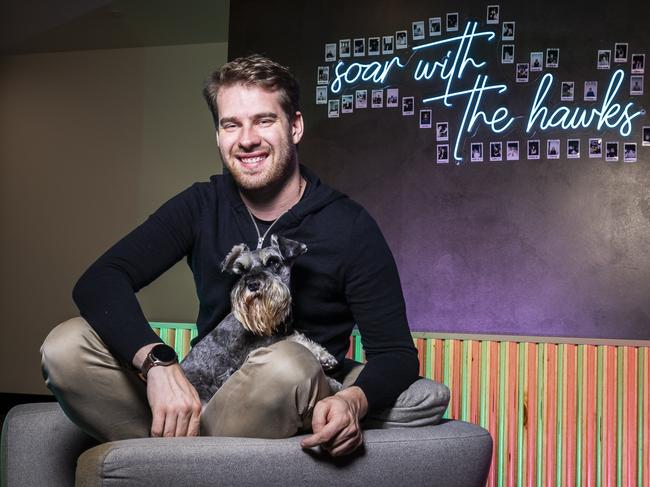
THE INTROVERTED COMPUTER GUY
Before Sanders could read, he was learning to trade, charter ships, and harness natural resources.
It was all done in a virtual online world called RuneScape, which he joined in the Flemington Primary School computer lab.
“I couldn’t read but I was playing this game and I was obsessed,” he says.
“Then I started learning. You could communicate with other people; you would trade, there was an economy in the game.
“As a kid it meant I grew up understanding that certain things had a worth and that there was a time cost of things.
“I think it became a little bit of an escape, as well.”
While at primary school Sanders’ parents divorced, which he didn’t think much of at the time but now realises had a big impact on his mum.
Finances were tight, and if conversations about costs of sport or school activities escaped his attention, the lack of computer paraphernalia did not.
“When you’re a kid that’s your measure of success. I’m like, ‘why is Santa not giving me a PlayStation?” he says.
As a teenager things “started to get a little bit tougher”, and as his mum struggled with mental health issues he realised “I was doing things that normal kids weren’t”.
When his mum was forced to sell her house he went to live with his dad, unaware that his mum was embarking on the hard road to homelessness.
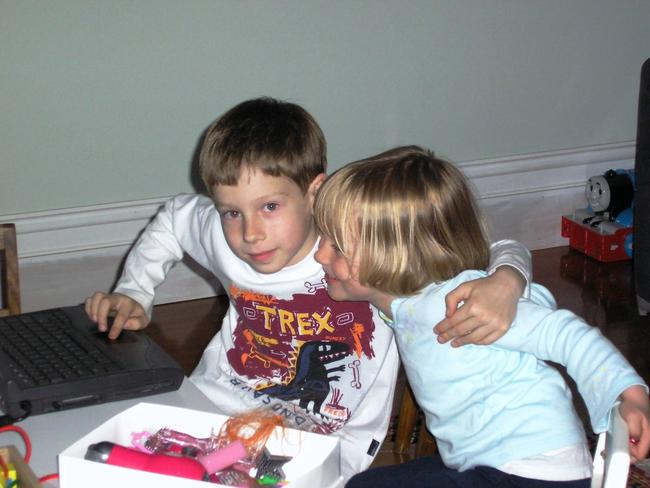
His dad was a sailor who navigated other people’s boats overseas, leaving Sanders at home alone, or with his dad’s partner of the time, for months at a time.
His dad’s idea of being a “real man” clashed with the reality that Sanders “was the introverted computer guy”, but his skills helped turn around his dad’s business after a search engine optimisation (SEO) scam that falsely promised a customer boost.
“It was the first time in my life I was learning something because I wanted to learn it, not because I had to learn it,” he says.
Sanders was now at University High School in Parkville, and tested SEO strategies he learned through online forums.
“The best way to learn something is to argue with people on forums, because people will just not hold back,” he says.
He later picked up freelance work for a local SEO company while still in school, which was the “beginning of the end” for his grades and attendance record.
As life fell apart at home he turned up to class about 20 per cent of the time, knowing that a public school “couldn’t force me to leave”.
With hindsight he recognises opportunities missed by the education system when it came to early intervention or connecting him with support services, such as the Lighthouse Foundation.
HANDLING THE BAGGAGE
While factors that lead to homelessness are complex and multifaceted, a single word uttered by one of his dad’s partners stands out.
“She called me baggage,” Sanders says.
“That really took a toll on me, mentally. I would have been 17. Effectively what came to a head was, she came in and said, ‘listen, it’s either the baggage or me’.
“That’s effectively how I ended up on the street.”
His first night, he found himself under a bridge, seeking help.
“I just naively thought in Australia, I’ll probably be in a house next week.”
Instead he remained homeless for eight months and cycled between the street, strangers’ couches, and social services.
He met another teen, Finn*, at a St Vincent de Paul Society shelter, and they made a pact to stick together.
“He saved me so many times,” he said.
“Finn was very street smart. I was a nerdy introverted kid that was good on a computer and who had the street smarts of a toddler.”
They sometimes took up offers from good Samaritans offering couches – but Finn warned him to be sceptical and test for cameras in private rooms.
“He would teach me things like how to flip the light switch to hear for the IR (infra-red) shutters.”
One night the pair was offered a room after a stretch on the streets where “you barely sleep”, and Sanders was keen to accept.
“But Finn was like, ‘I’ve just got a bad gut feel. We’ve got to go.’ And if one of us went, we both went,” he says.
“I found out a week later that some other kid had stayed there and got roofied (drugged) and all sorts of bad shit happened.”
Often, Sanders was the one driving the pair onwards once he felt their welcome had worn out.
“The problem I really had was from when I was called baggage; I really struggled, mentally, staying somewhere for too long,” he said.
Sanders, who is now 27, is remarkably open about his experience and the lifelong battle he faces to overcome those mental barriers.
“Even now, and I’ve had that much therapy, right, but I still hold on to that – I don’t want to be anyone’s baggage.”
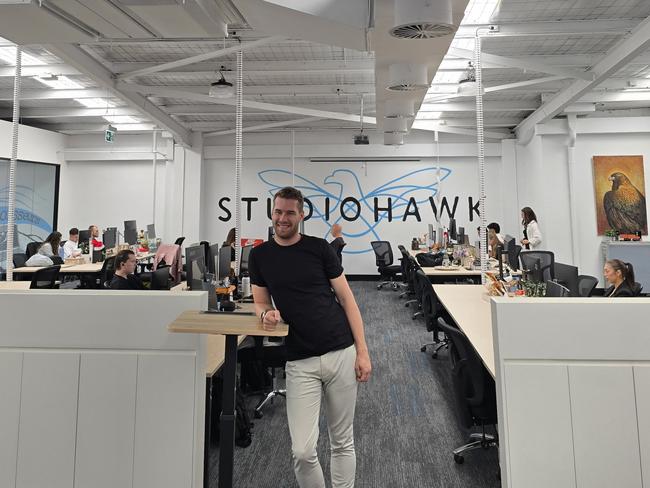
SELF-MADE? THAT’S BULLSHIT
Sanders credits two “angels” for lifting him off the streets.
The first was a social worker at St Vincent de Paul Society, Carly*, who helped him crawl out of a “dark place” while facing the unrelenting demands of helping several disadvantaged kids.
“She would take time out of her time off, to catch up with me,” he says.
“I just thought that was remarkable.”
Carly referred him to a government-funded program called Getting Down To Business that helped young people with fledgling companies take flight, and encouraged him to continue what he had started before sleeping rough.
“I thought it was the stupidest idea at the time. ‘You’re homeless, let’s start a business!’” he says.
“It taught me about getting clients and networking. It was just a safe place, and they gave me this mentor called Graham.”
Graham Robertson, a former CEO of Tetley Tea, was connected to the Lighthouse Foundation.
Sanders laughs when recalling what he thought of being paired with Robertson.
“I was like, what the f*** is this old guy going to teach me about tech and SEO?” he says.
“I was young, naive, and I had no idea that this guy was going to teach me nothing about tech and SEO; he was going to teach me everything about building a business.”
Sanders said the idea he was self-made was “bullshit”.
“I didn’t pull myself up off the street with my own bootstraps. I had these fantastic mentors and people that helped me,” he says.
Robertson “forced me against my will” to attend networking events and he secured his first client, who he charged just $250 a month.
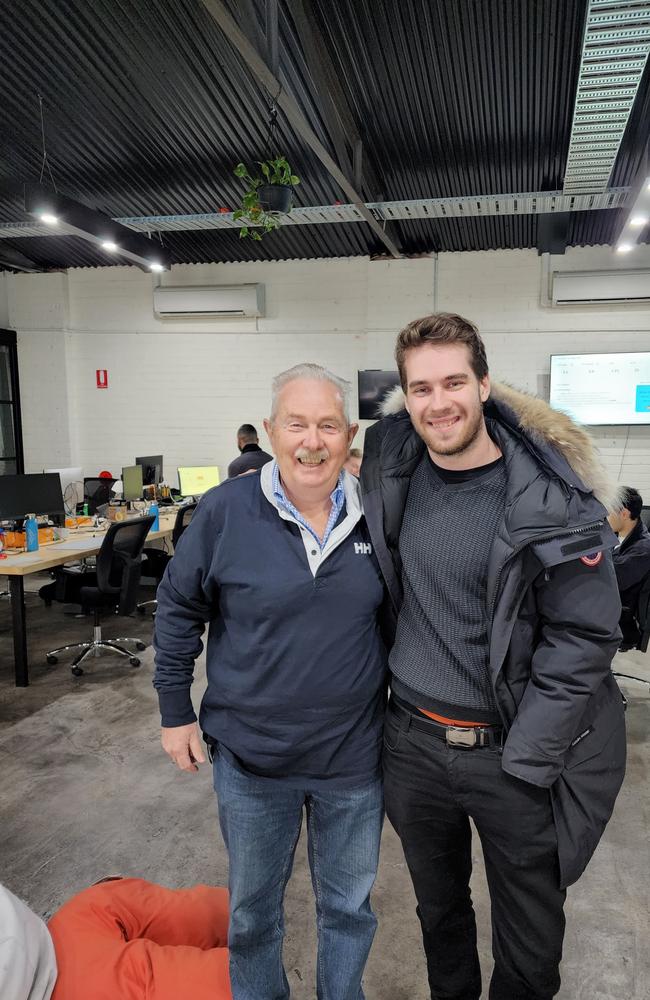
Once he was referred to other clients, he took in almost $1000 a month – enough to pay for a share house in Murrumbeena, where he slept the first night on his room’s carpeted floor.
“There was just this feeling of relief, it wasn’t the comfiest surface but when you actually have four walls and a door, you feel like you have privacy and safety.”
The program that gave Sanders a start is now privately funded – including by his business StudioHawk – after government funding was pulled.
And Finn?
He is in a share house and “doing okay”, but struggles to hold down work and has ongoing mental health issues.
As a Lighthouse Foundation ambassador, Sanders says he is happy to share his “embarrassing” story because “the best way to understand is to talk about it”.
“I’m super lucky, I’ve come out on the other side, but imagine all the people that are still going through it?” he says.
“I call it soul work. Graham always told me, you want to do something for the heart, for the brain and for the soul.
“I didn’t really understand what that meant at the time. Now I understand that Studiohawk is great for the brain but you’ve got to do something deeper than just build a great company. What’s the community impact?”
Part of his job is to educate people, including those who say they see people on the streets with mobile phones which must mean they are “fake homeless”.
“I don’t think I knew any homeless people without a phone. Cheap to acquire, it costs like a few bucks for a SIM card.
“It’s probably the last thing you want to give up because if you’re in a situation where you need to get help, you want a mobile phone.
“Most people that are homeless aren’t going to be on Chapel Street. They’re going to be couchsurfing, they’re going to be in camps, and if they can’t or when it’s unsafe, then they’ll probably go on the street.”
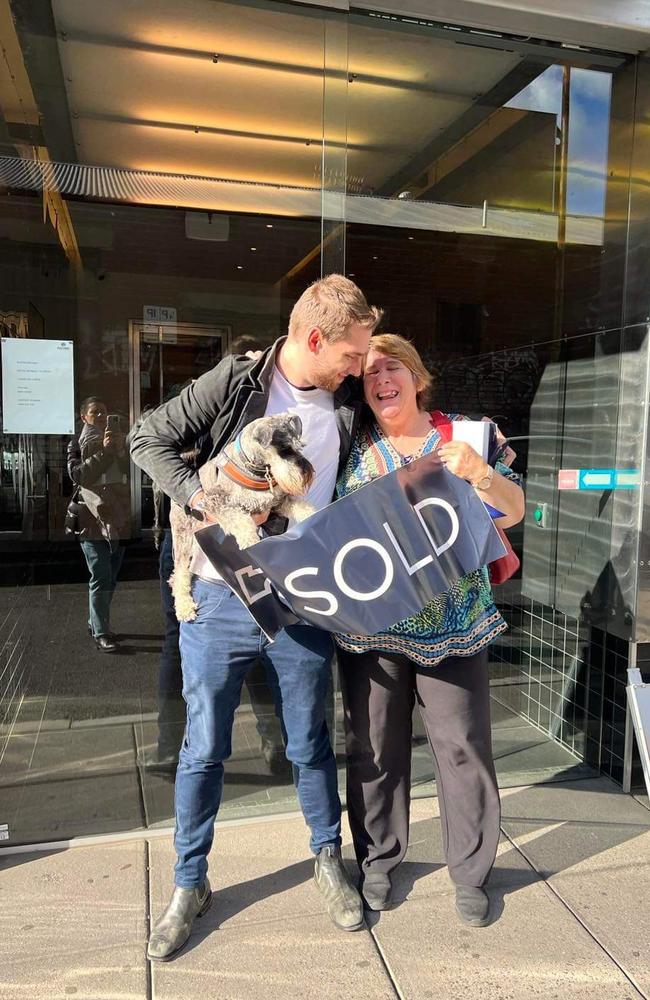
STUDIOHAWK TAKES FLIGHT
Just a year after getting off the streets, Sanders hired his first colleague – who was on the verge of being kicked out of home.
He remembers being daunted by the responsibility and the $20 an hour he had to fork out.
“Fast forward almost 10 years and we have global offices, with a luggage business (Kadi) as well. We have got over 100 people in the business.”
Hiring policy remains simple, with the ethos of the team literally written on StudioHawk’s office walls in Prahran.
“Wholesome nerds,” Sanders says.
“What we don’t hire is what we call ‘too cool for the school’, who think they know everything and they’re too cool to be working with these people.”
Many staff are gamers, who thrive in a team dynamic with a common goal and enjoy “continuously learning”.
The business, the largest of its type in Australia, helps brands with content strategy, technical work, and getting into AI searches – effectively showcasing their authority and credibility to drive web traffic, social media presence, and revenue.
Its success led to an expansion to Sydney, then London, and recently Atlanta, where US turnover hit $1mUSD after a few months.
The Australian offices turn over $18mAUD a year.
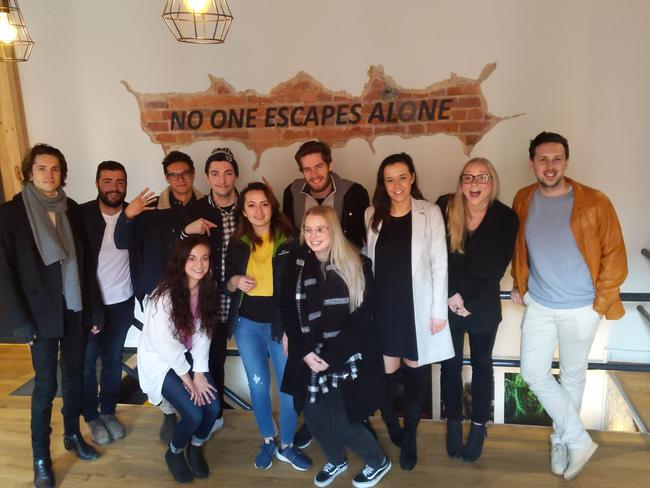
Sanders says there “is no ceiling” to growth but doesn’t focus on profit alone – he points to initiatives like Hawk Academy, a free platform to give people pathways into SEO, and the ongoing “soul work”.
His luggage venture, Kadi, also has ties with the Lighthouse Foundation, and he describes his ambassador role as “the most amazing and the most awful work I have to do in my day”.
“You hear these stories that are so dark you couldn’t even put it in a movie. But then you hear about one of our kids who passed their driving test and got a job at a warehouse and is on a pathway to getting back into their own home.
“The best part is you probably don’t even hear about it, they go off and they resume life in society.
“I think it’s something like 95 per cent of the kids that Lighthouse help never end up on the streets again, which is remarkable.
“You can go into the economic benefit of it, too, which is just enormous. A lot of people think, ‘Oh, they should just do it because it’s the right thing to do’, but that’s not really how the world works.”
Originally published as Big V: How StudioHawk founder Harry Sanders went from homeless to a multi-millionaire


